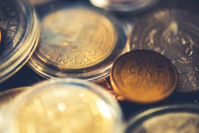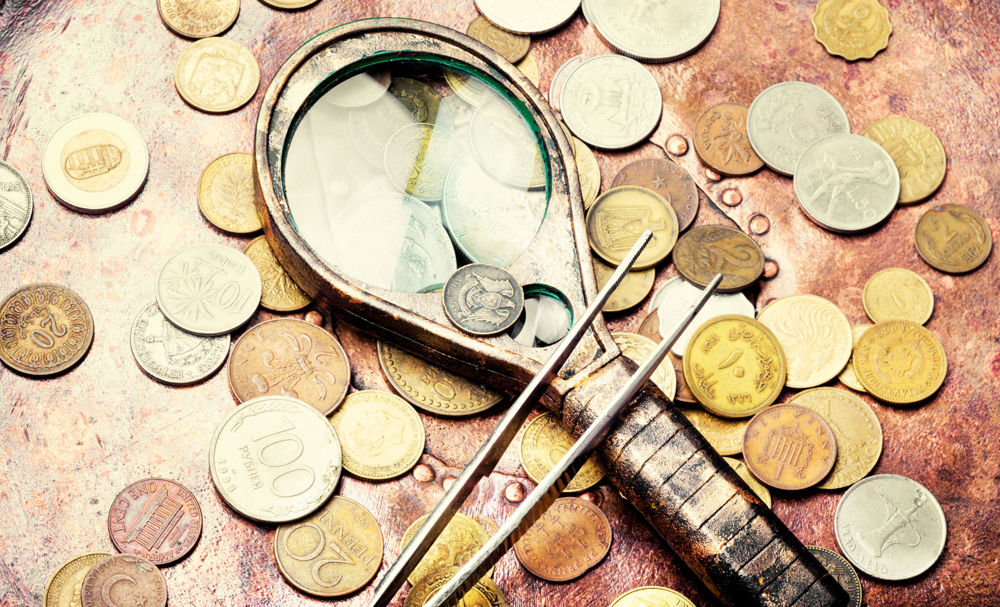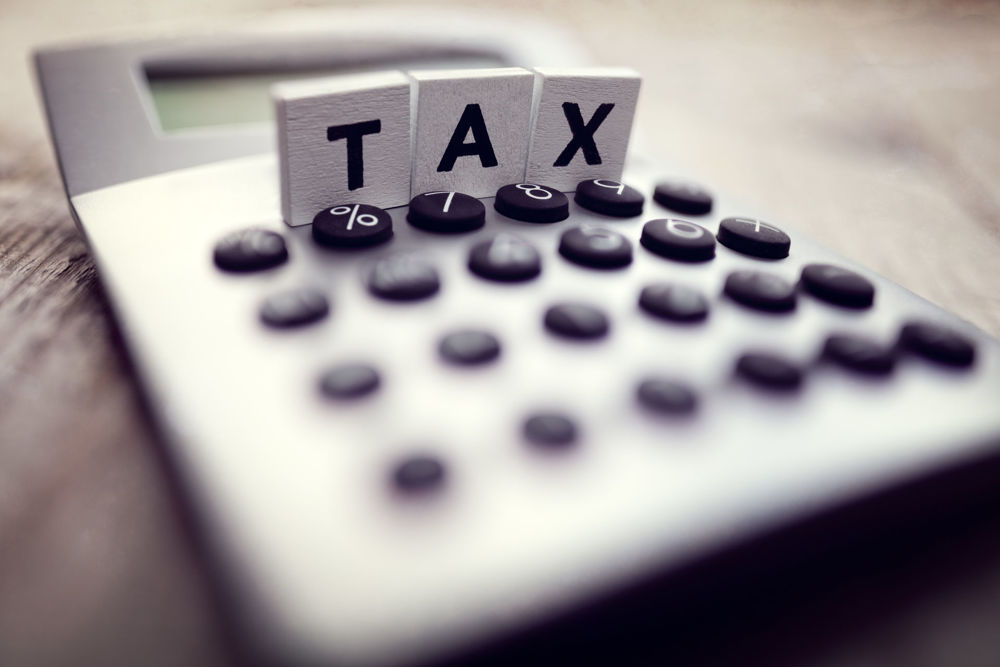Posted on July 21, 2021

So, you’ve inherited a coin collection. You might be feeling grief, excitement, or maybe just overwhelmed when looking at your new possession.
But what do you do now? Generally, you have three options when it comes to an inherited coin collection:
All three of these options have their own merit depending on the situation and your personal connection to numismatics and the collection you’ve inherited.
Regardless of your ultimate intentions, there are a few crucial things you should do immediately before you consider anything else.
The first thing to do is get your collection appraised. (Even if the previous owner had an appraisal done on the collection, it could be outdated as the value of coins can change drastically over time.) Learning the value of the collection may change your mind about what you’ll ultimately do with it. There is a considerable difference between inheriting a $100 coin collection and a $100,000 coin collection.
 Find a reputable appraiser – do not stand in line for Antiques Roadshow. Look for well-rated and certified coin dealers (they are often certified appraisers too). Experienced appraisers will have a large network of coin collectors they’ve worked with in the past which could help you determine their trustworthiness.
Find a reputable appraiser – do not stand in line for Antiques Roadshow. Look for well-rated and certified coin dealers (they are often certified appraisers too). Experienced appraisers will have a large network of coin collectors they’ve worked with in the past which could help you determine their trustworthiness.
Don’t make these common mistakes:
The appraisal process will also be helpful for future tax considerations (depending on what you decide to do with the collection). We will discuss tax considerations a bit later.
There may be some gold, silver, or other coins in the collection that weren’t previously graded. Graded coins can be sold much more easily since professionals vet them for their quality and authenticity. Even if you want to keep the collection, the grading process will be helpful in better understanding what coins you now possess, their relative rarity, and their value. Therefore, you should be sure to grade all of your coins if possible.
You will also want to keep track of the cost to appraise and grade each coin as you can lower the cost basis (the original value for tax purposes) of these coins by these expenses. This will be advantageous when tax time rolls around.
Once your coins are appraised and graded, you will want to securely pack the coins to be stored before deciding what to do with them next. Damaging your inherited coin collection could make a massive difference in its value. Depending on its overall value, you might opt for insurance as well.
What to do:
Keeping the collection might bring you joy and a sense of connection with the collection’s previous owner. If this is the case, you will want to ensure that the coins are properly stored and preserved, not degraded over time. Keep your coins in proper storage containers, which will keep out humidity and air that could damage the coins. You can also display your coins in display cases if you want to show them off to the world.
Regardless of where and how you store your collection, keep the grading certifications to either pass down to the next owner or if you decide to sell the collection at a later date. Also, keep records of the value of each coin if done by an appraiser. You can also use a reference guide like A Guide Book of United States Coins 2021 to value your coins as well.
What not to do:
You might get the urge to clean your new coins if they seem dirty or worn. But this is nearly always a big mistake. Cleaning coins yourself is more likely to lead to imperfections than anything else. This is especially true for those who don’t have experience with coin cleaning.
It’s better to take your coins to a professional who can clean them for you.
What to do:
Now that you have a coin collection, maybe you are getting the urge to add to it. But don’t just go buying new coins willy-nilly.
Instead, take a look at the collection as it is and see if there are complementary coins that would make suitable additions to your specific collection. This might include coins to complete a set, or coins that are of the same style or time period as you already possess, or maybe just a theme you connect with.
Be sure to keep track of prices paid for any new coins, as well as the value of coins you’ve already inherited.
What not to do:
If you purchase new coins, don’t just throw them in with the ones you’ve inherited. This makes for sloppy record-keeping. Instead, use a coin collection tracking software such as PCGS Set Registry or the U.S. Coin app. Alternatively, you can create a spreadsheet or use good ‘ole pen and paper to track your coins, whether they’ve been inherited or bought, and their cost basis. This will make things much easier when it comes time for taxes.
What to do:
If you want to sell the collection and get the highest possible price for it, then you will still need to do the same steps as we’ve already discussed, like appraising and grading the coins and storing them securely. It’s better to keep track of the appraised value of the entire collection and the current market price for each individual coin in the collection. It may be more profitable to sell individual coins (or sets) rather than the entire collection at once. However, this does vary significantly on the collection and its contents so there’s no good rule of thumb.
When you sell the coins, keep detailed notes on the price paid for each coin transacted.
What not to do:
Just because you’ve decided to sell the precious metal coin collection doesn’t mean you should rush into the process. You still need to assess what you have correctly, its value, and what you can expect to earn from its sale. Many people who inherit collections don’t realize what they have until after they have sold the collection. Don’t risk taking the first lowball offer you hear just to get the collection out of your hands.
Imagine selling a collection only to learn later that it contained a coin that was worth 10 times what you sold it for? Obviously, this can lead to great regret down the line.
Do yourself a favor and take the time to have the collection appraised properly. That way, you will have a much better idea of what to expect when selling the collection.
Unlike the inheritance of other assets, coin collections are taxed a bit differently. As the beneficiary of the collection, you aren’t taxed on any of the gains made between the previous owner’s purchase and their passing. Instead, each coin’s current market value at the time of passing becomes its new cost basis moving forward. (See why appraisal is so important now?)
 One benefit is that your cost basis can be reduced by the amount paid for the appraisal and grading. When it comes time to sell the collection if desired, this cost basis is used as if it were the price at which the coins were purchased.
One benefit is that your cost basis can be reduced by the amount paid for the appraisal and grading. When it comes time to sell the collection if desired, this cost basis is used as if it were the price at which the coins were purchased.
These tax considerations don’t apply to any new coins added to a collection after you inherited them. This is an important reason why we stress keeping detailed records of collections. You must know which coins were inherited and which were purchased later.
If the collection was inherited as part of a large estate, it could be subject to estate taxes for the beneficiary. If you’d rather avoid estate taxes, the collection can be gifted ahead of time, so it is not included in the estate.
Finally, state taxes should also be considered for inherited collections. The tax law in each state is different, so be sure to do your research and better understand the tax implications of your inherited collection. This might require speaking with a tax specialist with knowledge of your state’s specific inheritance tax policies.
There is no right answer when it comes to inheriting a coin collection. Not only is each person different, but each collection is unique in its own right. For one, you might want to discuss your options with a tax advisor who can help layout all of the implications for your inherited collection.
If you decide to keep the collection or even build upon it, you can use the plethora of resources at BullionMax to help you learn more about coin collecting and what coins you might want to add to the collection. At BullionMax, we strive to provide collectors with the most comprehensive repository information for coin collectors and numismatic enthusiasts.